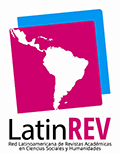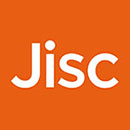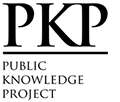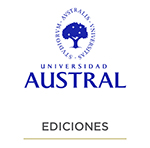The Invasion of Ukraine and the Crime of International Aggression
On the Need to Create an Ad Hoc International Tribunal
Abstract
Except for the illegal invasion perpetrated by Saddam Hussein against Kuwait, the world had not witnessed such pristine and overt international aggression as that perpetrated by the political and military leaders of the Russian Federation against the Republic of Ukraine. This article analyzes the crime of international aggression or crime against peace, both in its regulation by the Statute of the International Military Tribunal of Nuremberg (and its counterpart in Tokyo) and in the Statute of the International Criminal Court in accordance with the wording given by the Kampala Conference of 2010. The first case fits the so-called Theory of Collective Responsibility designed by Murray Bernays, founded on two speeds: (i) the determination of a conspiracy by the political and military leaders to launch a war of conquest over another State or States, as well as the outlawing of those organizations or institutions created by the leaders to execute the criminal plan; and (ii) the determination of the criminal responsibility of all those individuals who, knowingly and freely, have decided to join such illegal organizations or institutions and have interacted with the other members in the pursuit of the criminal result. In the second case (Statute of the International Criminal Court), the crime has been classified as its particular criminal type, concerning which there is no possibility of attributing liability to third parties.
Likewise, the need to establish an ad hoc or hybrid international criminal tribunal through a bilateral treaty between Ukraine and the UN General Assembly is advocated. The mission of such a tribunal should be to prosecute and punish all those responsible for the crime of international aggression perpetrated against the Ukrainian people. Such a tribunal should have jurisdiction only over the crime of international aggression, with the possibility of conducting trials in absentia.
Downloads
References
Abely, C. (2023). The Russia Sanctions. The Economic Response to Russia’s Invasion of Ukraine. Cambridge University Press.
Aparisi Miralles, A. (2007). Derecho a la paz y derecho a la guerra en Francisco de Vitoria. Comares.
Arbuet-Vignali, H. (2023). La agresión de Rusia a Ucrania. El fracaso de las Naciones Unidas, caída y superación del Derecho Internacional. Reflexiones y propuestas de cambios. Fondo de Cultura Universitaria.
Barriga, S. y Kreß, C. (2011). The Travaux Préparatoires of the Crime of Aggression. Cambridge University Press.
Bellamy, A. J. (2023). Warmonger. Vladimir Putin’s imperial war. Agenda Publishing Limited.
Benedicto XVI. (25 de diciembre de 2005). Carta encíclica Deus Caritas Est. Librería Editrice Vaticana.
Charap, S., Massicot, D., Priebe, M., Demus, A., Reach, C., Stalczynski, M., Han, E. y Davis, L. E. (2021). Russian Grand Strategy. Rhetoric and Reality. Rand Corp.
Cruz Prados, A. (1991). Para un concepto de “guerra” de una filosofía de “paz”. Actualidad del pensamiento de Vitoria. Anuario de Filosofía del Derecho, VIII, 220-243.
Cruz Prados, A. (2003). La razón de la fuerza. Pearson.
D’Ors, A. (1954). De la guerra y de la Paz. Rialp.
Díaz Narváez, A. (2023). La respuesta de la Unión Europea a la invasión rusa de Ucrania: las medidas sancionadoras. En Regueiro Dubra, R. (Coord.), La agresión de Rusia contra Ucrania. Neo-Imperialismo de Putin vs. Ordenamiento internacional (pp. 91-158). Tirant lo Blanch.
Drozdov, E. y Drozdova, O. (2023). Legal War with Russia and Cooperation with the International Criminal Court: Organisational, Jurisdictional and Criminal Procedure Aspects. En González Beilfuss, C., Navarro-Michel, M. y Fernández Pons, X., (Dirs.), Impactos de la Guerra de Ucrania (pp. 95-128). Tirant lo Blanch.
Fernández Pons, X. (2023). El rol de la Corte Penal Internacional (CPI) ante la guerra de Ucrania. En González Beilfuss, C., Navarro-Michel, M. y Fernández Pons, X. (Dirs.), Impactos de la Guerra de Ucrania (pp. 69-94). Tirant lo Blanch.
Fench, H. W. (2023). Why Ukraine’s War Is Not a Priority for the Global South. Foreign Policy. https://foreignpolicy.com/2023/09/19/unga-ukraine-zelensky-speech-russia-global-south-support/.
Finocchiaro, E. (2016). El Derecho Penal Internacional. Despliegue punitivo de la Comunidad Internacional. Hammurabi.
Finucane, B. y Pomper, S. (8 de mayo de 2023). Can Ukraine Get Justice Without Thwarting Peace? Foreign Affairs. https://www.foreignaffairs.com/ukraine/russia-ukraine-justice-thwarting-peace.
Fiumara, F. (17 de julio de 2019). Juicios en ausencia. ¡Presente! La Nación. https://www.lanacion.com.ar/opinion/juicios-ausencia-presente-nid2268743/.
Freedman, L. y Michaels, J. (2019). Aggression and Retaliation. En The Evolution of Nuclear Strategy (4ª ed.). Palgrave Macmillan.
Gaita, R. (2005). Refocusing Genocide: A Philosophical Responsibility. En Roth, J. (Ed.), Genocide and Human Rights. A Philosophical Guide (pp. 153-166). Palgrave Macmillan.
Gillies, P. (1997). Criminal Law (4ª ed.). Law Book Co. of Australasia.
Guilfoyle, D. (2015). International Criminal Law. Oxford University Press.
Hathaway, O. (2022). The Case for Creating an International Tribunal to Prosecute the Crime of Aggression against Ukraine (part. I). Just Security Org. https://www.justsecurity.org/83117/the-case-for-creating-an-international-tribunal-to-prosecute-the-crime-of-aggression-against-ukraine/.
Heller, K. J. (2011). The Nuremberg Military Tribunals and the Origins of International Criminal Law. Oxford University Press.
Henderson, S. (2023). Atrocity Crimes and International Law: Responsibility to Protect, Intercession, and Non-Forceful Responses. Routledge.
Ingerflom, C. (2022). El dominio del amo. El estado ruso, la guerra con Ucrania y el nuevo orden mundial. Fondo de Cultura Económica.
International Court of Justice. (26 de febrero de 2007). Case concerning the application of the Convention on the Prevention and Punishment of the Crime of Genocide (Bosnia & Herzegovina vs. Serbia and Montenegro), No. I.C.J. Rep.43.
Jackson, R. (1946). Opening Address for the United States, International Military Tribunal. United States Government Printing Office.
Karaganov, S. (8 de febrero de 2022). It’s not Really about Ukraine. RT. https://www.rt.com/russia/548630-decades-long-standoff-nato/.
Kasparov, G. y Khodorkovsky, M. (20 de enero de 2023). Don’t Fear Putin’s Demise. Victory for Ukraine, Democracy for Russia. Foreign Affairs.
Kimmage, M. y Lipman, M. (13 de enero de 2023). Wartime Putinism. What the Disaster in Ukraine Has Done to the Kremlin and to Russia. Foreign Affairs.
Lemkin, R. (2015). El genocidio soviético en Ucrania. En Genocidio —escritos—. Centro de Estudios Políticos y Constitucionales.
Macleod, C. (2010). Towards a Philosophical Account of Crimes against Humanity. The European Journal of International Law, 21(2), 281-302.
Marcu, S. (2021). Geopolítica de Rusia y Europa Oriental. Síntesis.
May, L. (2005). Crimes against Humanity. Cambridge University Press.
May, L. (2008). Aggression and Crimes against Peace. Cambridge University Press.
May, L. (2013). Limiting Leviathan: Hobbes on Law and International Affairs. Oxford University Press.
Milakovsky, B. (31 de marzo de 2022). Putin’s Pyrrhic Victory. Russia’s Setbacks in Eastern Ukraine Show Why It Can’t Win the Wider War. Foreign Affairs.https://www.foreignaffairs.com/articles/ukraine/2022-03-31/putins-pyrrhic-victory.
Oksanen, S. (2024). Dos veces en el mismo río. La guerra de Putin contra las mujeres. Salamandra.
Olásolo Alonso, H. (2013). Tratado de autoría y participación en Derecho penal internacional. En homenaje al Prof. Augusto Ramírez Ocampo. Tirant lo Blanch.
Pawlik, M. (2018). ¿Pena o combate de peligros? Los principios del Derecho Internacional Penal Alemán ante el foro de la teoría de la pena. En Falcone, A., Polaino-Orts, M., Eckstein, K. y Cancho Espinal, C. (Coords.), Autores detrás del autor. Homenaje al Prof. Dr. Dres. h.c. Friedrich-Christian Schroeder (pp. 73-92). Ad-Hoc.
Pawlik, M. (2022). El delito, ¿lesión de un bien jurídico? En Lerman, M. y Días, I. (Coords.), Derecho penal y libertad. Diez contribuciones de Michael Pawlik y un análisis a partir de su obra (pp. 143-162). Editores del Sur.
Pereira Garmendia, M. (2016). Responsabilidad penal por los delitos atroces. Genocidio y Lesa Humanidad. BdeF.
Pereira Garmendia, M. (2023). La responsabilidad de Vladimir Putin y asociados: ¿Es posible hacerles rendir cuentas ante la justicia por la invasión a Ucrania? En Pereira Garmendia, M. (Dir.), La invasión de la Federación Rusa a Ucrania. Cuadernos de Seguridad Internacional y Derecho Penal Internacional (Tomo 1, pp. 285-351). BdeF.
Pinker, S. (2018). Los ángeles que llevamos dentro. El declive de la violencia y sus implicaciones. Paidós.
Plokhy, S. (2022). Las puertas de Europa. Pasado y presente de Ucrania. Península.
Remiro Brotóns, A. (2022). El crimen de agresión. En Martínez Jiménez, A. (Dir.), Derecho penal internacional. Evolución histórica, régimen jurídico y estudio de casos (pp. 263-287). Aranzadi.
Robinson, D. (2020). Justice in Extreme Cases. Criminal Law Theory Meets International Criminal Law. Cambridge University Press.
Sagan, S. y Waltz, K. (2012). The Spread of Nuclear Weapons: an Enduring Debate. WW Norton & Co.
Scharf, M. (2010). Seizing the Grotian Moment: Application of Joint Criminal Enterprise Liability to the Proceedings of the Cambodia Genocide Tribunal. En Smeulers, A. (Ed.), Collective violence and International Criminal Justice. An Interdisciplinary Approach (pp. 80-103). Intersentia.
Smith, B. (1982). The American Road to Nuremberg: the documentary Record 1944-45. Hoover Institution Press.
Stuart, H. y Simons, M. (2021). El fiscal y el juez. Benjamin Ferencz y Antonio Cassese. Berg Institute.
Trahan, J. (2020). Existing Legal Limits to Security Council Veto Power in the Face of Atrocity Crimes. Cambridge University Press.
Van Sliedregt, E. (2012). Individual Criminal Responsibility in International Law. Oxford University Press.
Vázquez Rodríguez, B. (2017). La responsabilidad de proteger: entre imperativo moral y norma jurídica. Ediciones de la Universidad de Oviedo.
Vitoria, F. F. (1952). Comentarios a la Secunda secundae de Santo Tomás, (Vol. III, a.1 núm. 7). Beltrán de Heredia.
Vitoria, F. F. (1976). Relecciones sobre los indios y el derecho de la guerra (3ª ed.). Espasa-Calpe.
Vitoria, F. F. (1981). Relectio de iure belli o paz dinámica. Consejo Superior de Investigaciones Científicas.
United Nations General Assembly (XVI). (2005). World Summit Outcome. https://www.un.org/en/development/desa/population/migration/generalassembly/docs/globalcompact/A_RES_60_1.pdf.
Walt, S. (2022). Liberal Illusions Caused the Ukraine Crisis. The greatest tragedy about Russia’s potential invasion is how easily it could have been avoided. Foreign Policy, 1(22). https://foreignpolicy.com/2022/01/19/ukraine-russia-nato-crisis-liberal-illusions/.
Weigend, G. (2020). La absolución del Sr. Bemba: ¿Un atajo a la justicia? El caso Bemba y la responsabilidad del mando. Comentarios y traducción de la sentencia de apelación. Tirant lo Blanch.
Copyright (c) 2024 Mario Martin Pereira Garmendia, Diego Alberto Zapata Gonzales

This work is licensed under a Creative Commons Attribution-NonCommercial-NoDerivatives 4.0 International License.
This license allows the copy, distribution, exhibition and representation of the work provided authorship is acknowledged and the work is properly quoted. Commercial use of the original work or the generation of derived works are not allowed.
The authors hereby guarantee the right to the first publication of the work to the Revista Jurídica Austral.
















































